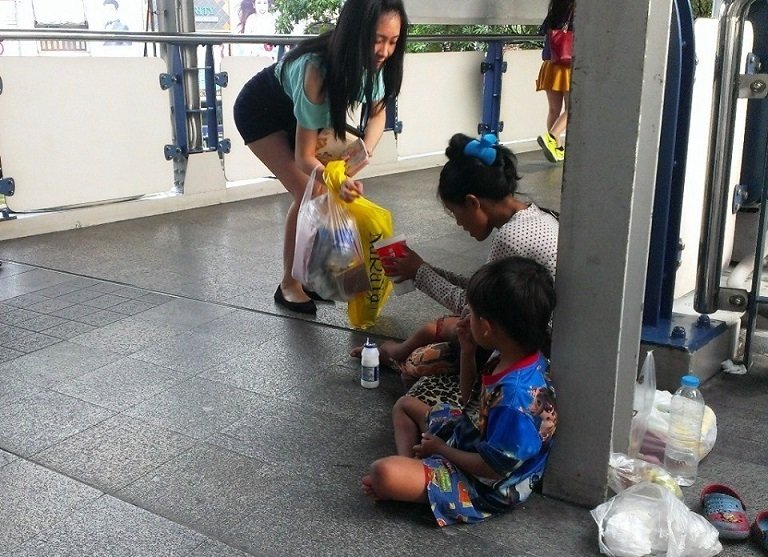A senior Thai official has caused a controversy by urging his fellow citizens not to give money to beggars, saying that many are making as much as 20 times more a day than the minimum wage.
Some beggars in Bangkok earn up to 7,000 baht (U$214) a day, over 20 times more than the official minimum wage of 336 baht, although the average income of beggars is 1,000 to 2,000 baht a day, according to Anukul Peedkaew, head of the Social Development Department.
Anukul argued that giving money to beggars only encourages the exploitation of vulnerable people, including children, who may be forced by others to beg. To stop the practice, the official has called on Thais to desist from giving money to beggars.
He has also asked the public to report instances they encounter of children begging on streets so that authorities can investigate the reasons why they are forced to beg.
Human trafficking rings have long been accused of using children, severely disabled people and others as beggars in money-making schemes around Bangkok and elsewhere in Thailand.
However, some Thais have taken issue with Anukul’s view, saying the Covid-19 pandemic, which has battered the economy, has caused financial hardship for millions of Thais, many of whom have been forced to beg for food and some money.
“I’ve been seeing a lot more beggars on the streets in my area than I used to,” Bussaba Prakew, a woman who runs a small eatery in central Bangkok, told UCA News. “I give them food and drink. They are very grateful. I feel sorry for them.”
All around Bangkok the numbers of destitute people lying on sidewalks have visibly increased, yet few of them seem to be begging outright. Instead, most appear to be surviving on handouts from locals in the form of food and other necessities.
A severely disabled person in a wheelchair who was selling trinkets to passersby outside a convenience store told UCA News on Feb. 13 that he earned only a few hundred baht a day at most.
“Sometimes I get more, sometimes I get less,” he said. “I wouldn’t be doing it if I could earn money any other way, but because of my condition I can’t.”
Here and there, children, usually with their parents, can also be seen begging on streets.
“The government knows only too well that these poor children are [often] trafficked by gangs. The good news is that there are good people in Thailand that help like Father Joe, who runs the Mercy Center in Klong Toey,” a foreigner noted online in a comment, referring to Father Joseph Maier, a Redemptorist priest from the United States who runs an orphanage and numerous preschools for disadvantaged children in an inner-city slum in Bangkok and other economically deprived communities.
The elderly Catholic priest, who has been in Thailand for a half century, has made it his life’s mission to help vulnerable children regardless of their religious affiliations.
“Please help children and the poor affected by the coronavirus crisis in the Klong Toey community and nearby areas with Father Joe Maier,” the priest’s Mercy Center asked Christians and others in Thailand in a social media post last weekend.
The Mercy Center is raising money to buy three nutritious meals with fresh fruit every day for 120 children at the center as well as hundreds of youngsters at its 21 preschools.
The Catholic charity is also engaged in several poverty-alleviation projects for destitute people in inner-city slums like Klong Toey.





